US, Israel fazed by Iran's fuel aid shipments to Lebanon: Nasrallah
The secretary-general of Lebanon’s Hezbollah resistance movement says the United States and Israel are fazed by Iran's fuel aid shipments to Lebanon, adding that a third such shipment will be headed toward the Arab country in the future.
Sayyed Hassan Nasrallah made the remarks in a televised speech broadcast via Lebanon's al-Manar television network on Friday, confirming that due to the fuel shortage in Lebanon a deal was reached with Tehran to dispatch a third fuel-loaded tanker to the Mediterranean country.
Lebanon has been mired since late 2019 in a deep financial crisis that has caused the Lebanese pound to lose around 90 percent of its value to the dollar. Severe fuel shortages and wide-scale power cuts have also paralyzed the country, which is also grappling with a political deadlock.
“We have agreed to start loading a third vessel. The coming days will prove those doubtful about the shipments arriving with fuel wrong … and our words will be clear when the first vessel reaches Lebanon,” Nasrallah said, five days after he confirmed that the first tanker carrying Iranian fuel for Lebanon had already departed.
The Hezbollah chief said Lebanon’s current economic crisis was due to an economic siege imposed by the US, stressing that the so-called Caesar sanctions by Washington on Syria had also harmed Lebanon.
“Go ahead and give Lebanon an exemption for Iranian gasoline and diesel … go ahead and give Lebanon an exemption from Caesar,” Nasrallah added, addressing Washington, days after the small country’s worsening fuel shortage reached a crunch point, threatening to bring daily life to a halt.
Nasrallah’s remarks came as some critics have warned of dire consequences from the purchase of Iranian fuel. They say such purchases will likely risk US sanctions being imposed on Lebanon, whose economy has already been in meltdown for nearly two years.
On Friday, Nasrallah was speaking on the occasion of the fourth anniversary of the Second Liberation Day, when territories in eastern Lebanon were liberated by Hezbollah fighters and the Lebanese Army from the Daesh Takfiri and other terrorist groups.
The landmark victory has been so named by the Hezbollah chief to signify the country's second most important victory after the withdrawal of Israeli military forces from southern Lebanon and Western Bekaa region in 2000.
“We insist to mark this occasion in order to take lessons from the dangerous experience and challenges our country was passing through,” Nasrallah said, adding, “What happened in the barrens in Bekaa years ago was part of the universal war waged against Syria, and part of a great scheme in the region.”
He noted that Lebanon was targeted by the Daesh scheme, stressing that the battle against the Takfiri group had two fronts, namely the Lebanese and the Syrian. He emphasized that Daesh received significant backing from some world powers and their regional lackeys.
Former US President Donald Trump repeatedly said that Daesh had been created by Hillary Clinton and former American President Barack Obama, Nasrallah said.
“The Resistance had intervened in the battle in Bekaa barrens after the Lebanese government did not shoulder its responsibility to liberate its territory,” the Hezbollah chief added, stressing, “The Second Liberation was part of the victory against Daesh and terror across the region.”
Nasrallah also emphasized that Daesh has ended its mission in Iraq and Syria and now has been brought to Afghanistan by the US.
Elsewhere in his remarks, Nasrallah touched on the issue of the current political deadlock in Lebanon, lambasting the delay in government formation.
In the wake of a colossal explosion that destroyed the port in Beirut and swathes of the capital in early August last year, then-premier Hassan Diab stepped down, but has so far run the country by a caretaker government.
Since then, politicians have failed to agree on a government even as Lebanon has been crippled by a major financial crisis, which has for the past two years put the currency in a free fall, eliminated jobs, and made banks freeze accounts.
Recently, Najib Mikati, a tycoon and former premier, was designated to form a new government some two weeks after the former premier-designate, Saad Hariri, resigned as a result of a nine-month political deadlock.
Mikati, who has so far failed to form his desperately-needed cabinet, said earlier on Friday that he still had to overcome major hurdles to forming a new government.
Nasrallah urged top politicians to stop debating names for the new cabinet and urgently form a government, which is a necessary first step to receive international support to help take Lebanon out of its deepest crisis since its 1975-90 Civil War.
“It is high time this debate now ends,” the Hezbollah chief said.
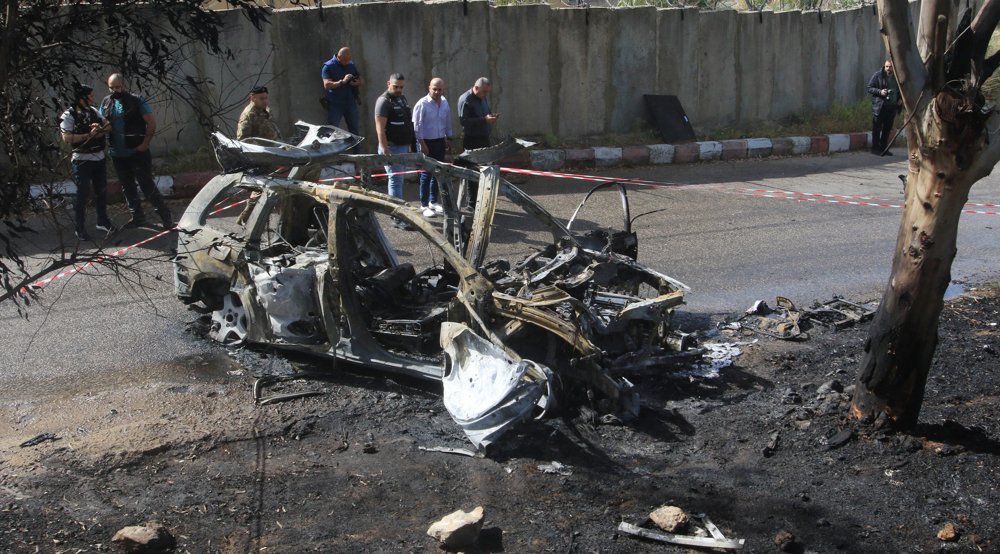
Hezbollah urges Lebanese govt. to act after Hamas-allied leader assassinated
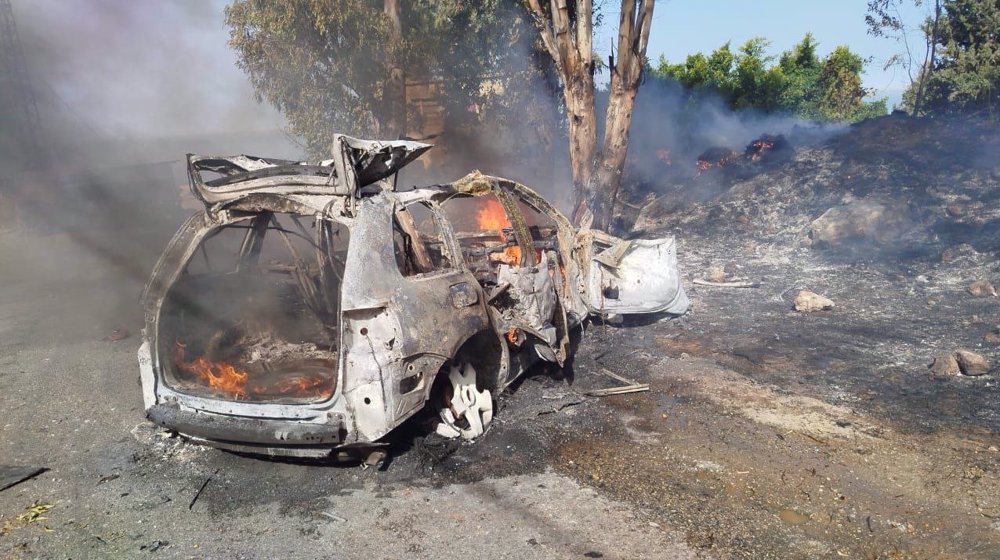
Senior Hamas-allied leader killed in Israeli drone strike south of Beirut
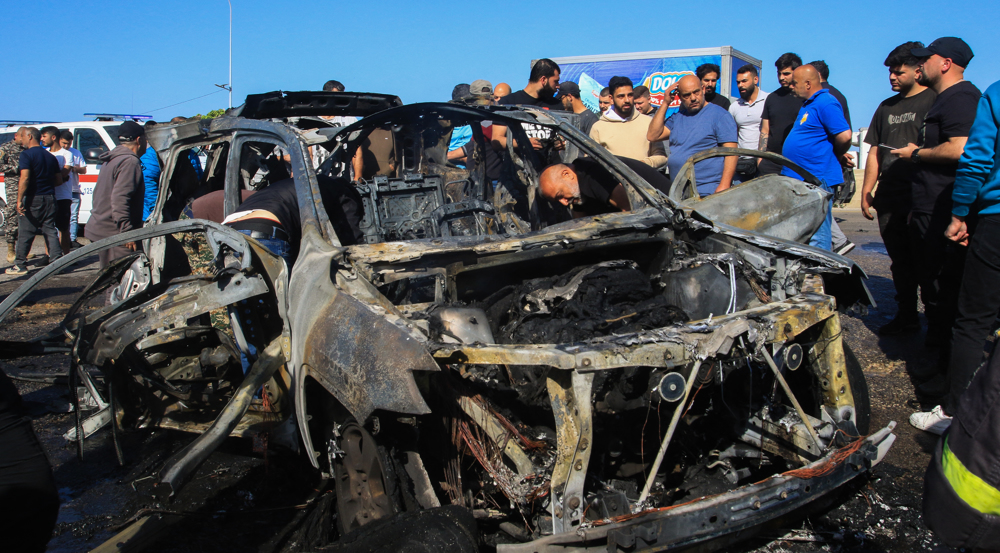
Israeli airstrikes kill at least two in southern Lebanon: Health officials
Over 100 rabbis, cantors slam Trump for pro-Palestine campus crackdown
Nearly 30 Palestinians killed in fresh Israeli strikes on Gaza
VIDEO | Press TV's news headlines
FBI, local police raid homes of pro-Palestine activists in Michigan
Trump ratings low amid US economic turmoil
VIDEO | Trump tariffs: A wrecking ball!
Israel deprives Gazans of basic needs for ‘survival’: UN
South Africa has no choice but to support resistance against Israel's genocide in Gaza


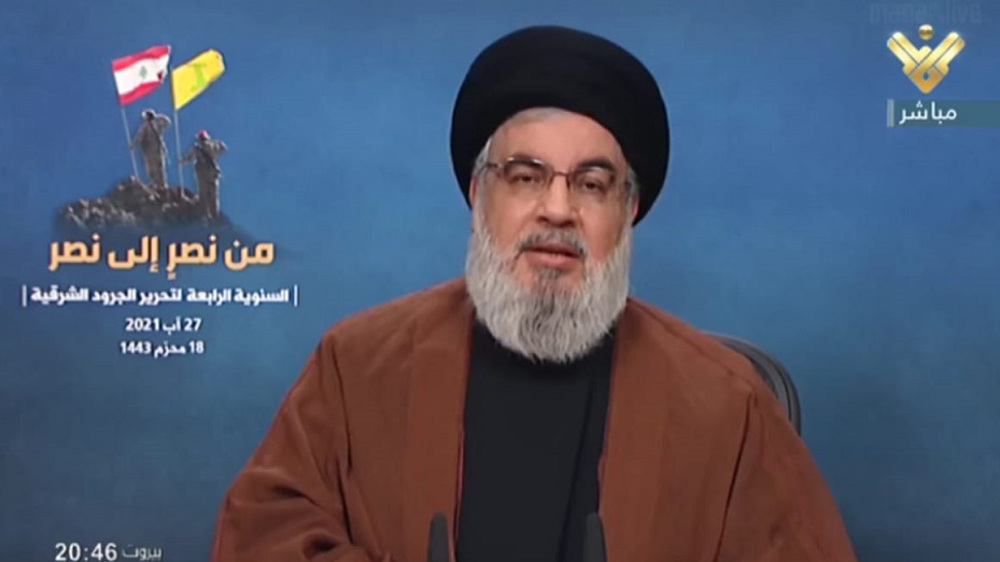
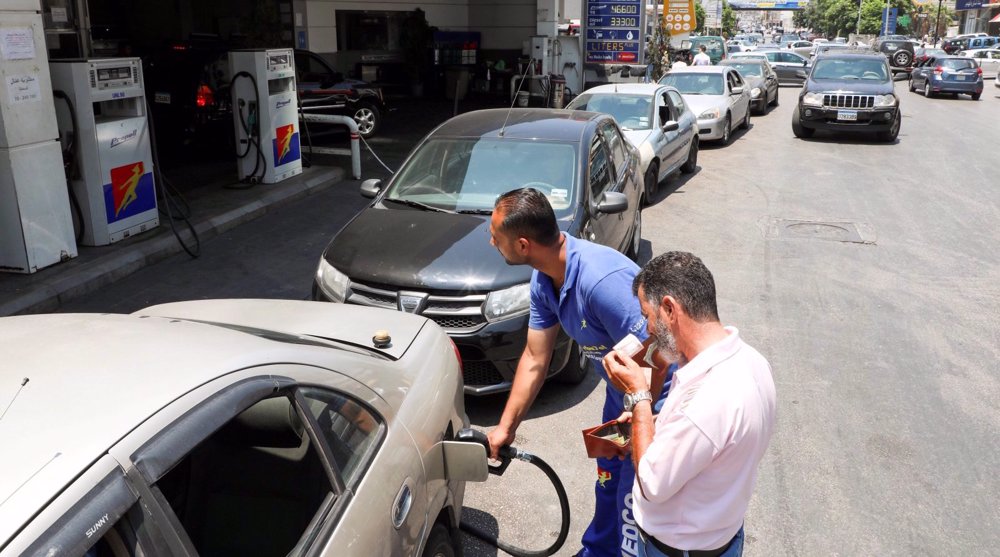

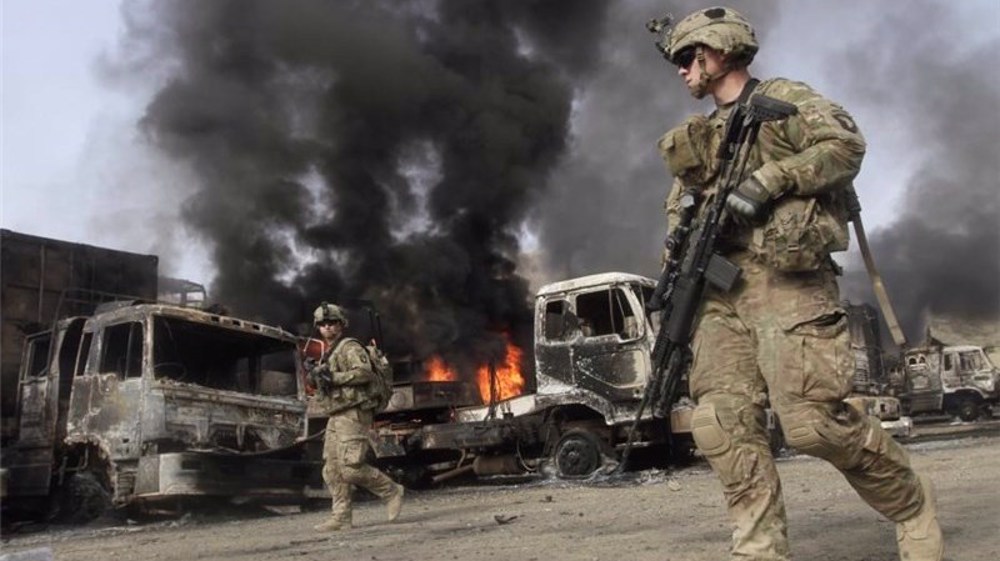
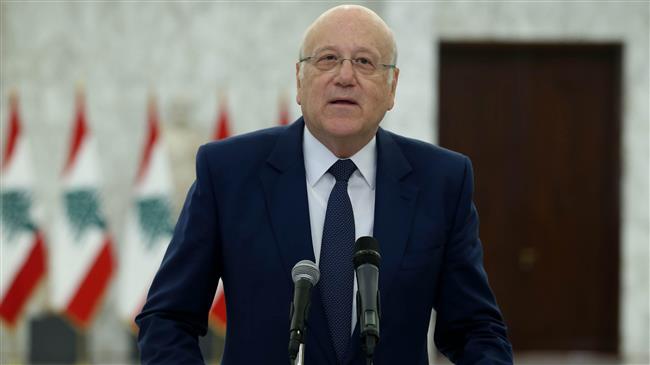




 This makes it easy to access the Press TV website
This makes it easy to access the Press TV website